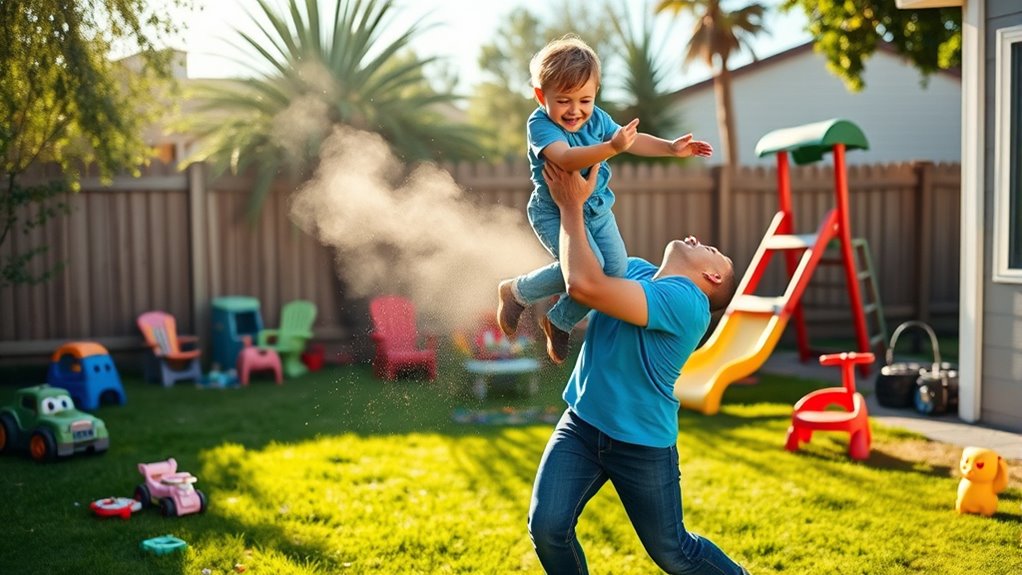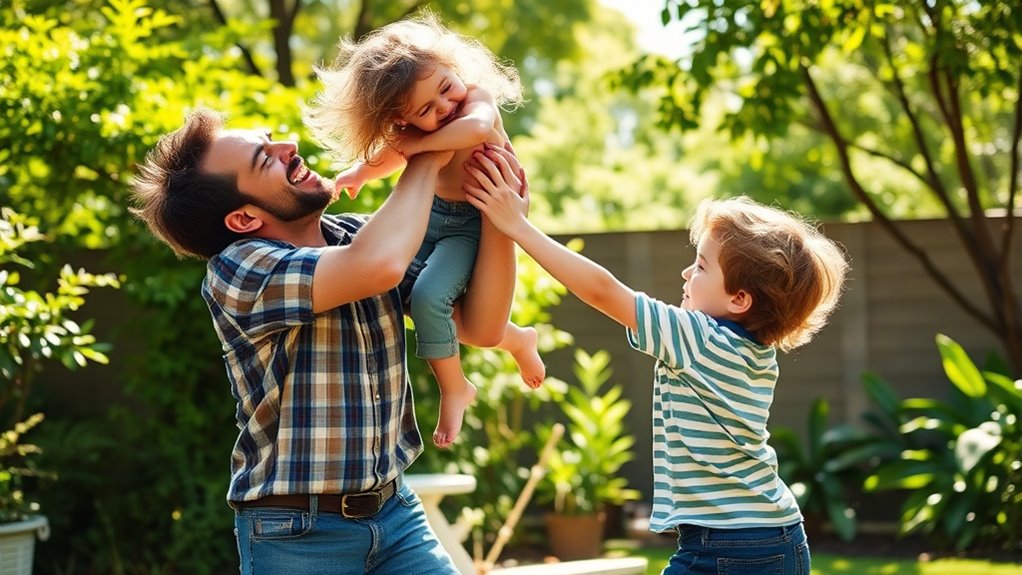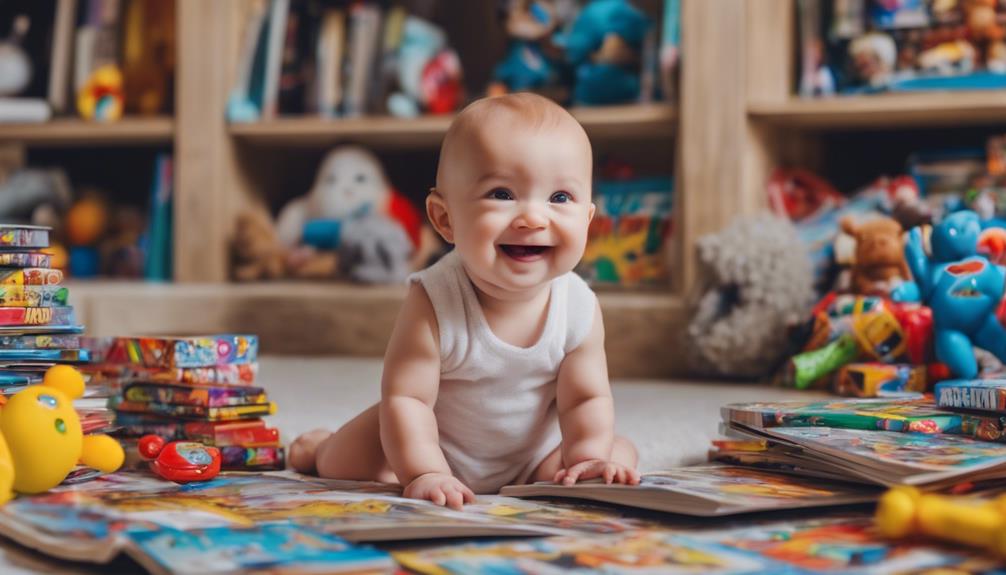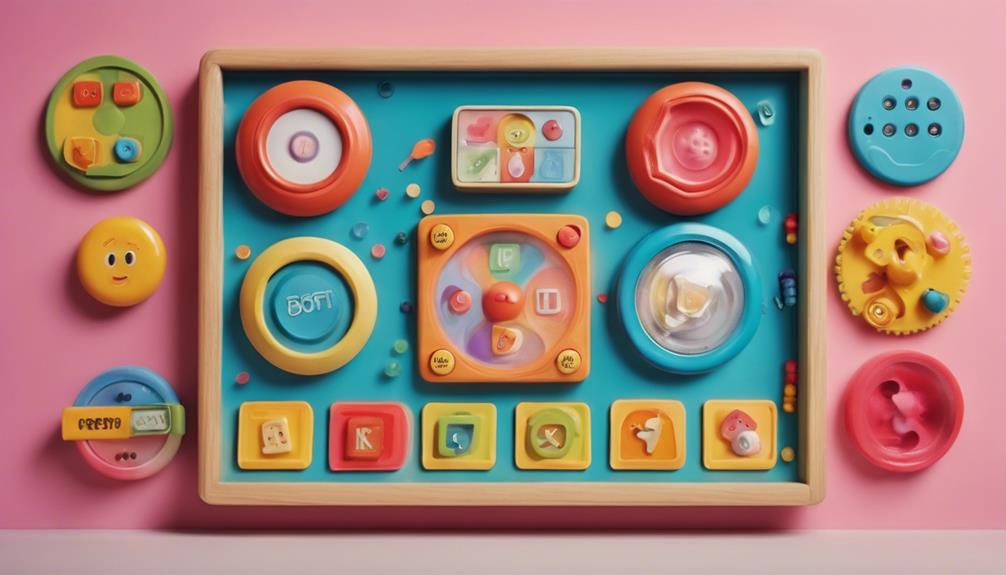As a high-energy dad, roughhousing can be a great way to bond while helping your kids develop essential skills. Games like chase, piggyback rides, or gentle wrestling boost coordination, balance, and confidence, all while keeping things fun and safe. These active play sessions also strengthen trust and emotional connection. Keep safety in mind, and you’ll discover how physical play can be both enjoyable and beneficial for your child’s growth—learn more below.
Key Takeaways
- Roughhousing boosts bonding, trust, and emotional security between high-energy dads and kids through joyful, active play.
- It develops essential motor skills like coordination, balance, and strength, supporting overall physical growth.
- Engaging chase and tag games improve reaction time, spatial awareness, and agility in children.
- Safe roughhousing teaches kids boundaries and self-control while encouraging expressive and confident behavior.
- Active play helps burn excess energy, promoting health and fostering positive, memorable family experiences.

When it comes to bonding with your kids, high-energy roughhousing games are a fantastic way to burn off steam and build strong connections. These activities aren’t just about having fun—they serve a deeper purpose by fostering parent-child bonding that lasts. As you engage in lively play, your child feels more secure and loved, strengthening your relationship in a natural, joyful way. Plus, roughhousing helps your kid develop essential motor skills. When you toss them into the air, wrestle gently on the floor, or chase after them, you’re encouraging coordination, balance, and strength. These movements are essential for their physical growth and set a foundation for future sports and daily activities.
Roughhousing strengthens bonds and boosts your child’s motor skills through joyful, active play.
You might worry about safety, but with a few simple guidelines, roughhousing can be both safe and incredibly beneficial. Always make certain the play area is clear of hazards, and keep the activities gentle enough to avoid injury. Pay attention to your child’s cues—if they seem tired or overwhelmed, it’s time to pause. The key is to create a playful environment where your child feels free to express themselves and push their physical boundaries in a controlled way. This kind of physical engagement not only boosts their motor skills but also teaches them about boundaries and self-control, as they learn to listen to your gentle guidance.
Engaging in high-energy roughhousing also helps improve your child’s spatial awareness and reaction time. When you play tag or chase games, they learn to judge distances, move quickly, and respond to changing situations. These are essential components of motor development that translate into better coordination and agility. As you wrestle or tumble, your child practices core strength and stability, which are fundamental for everything from riding a bike to climbing playground equipment. The active nature of these games keeps your kid moving, helping them burn off excess energy and stay healthy.
Most importantly, roughhousing creates shared experiences that your child will remember fondly. It’s a chance for you to connect on a physical level that feels natural and fun. As you laugh, cheer, and play together, your child develops a sense of trust and security. This not only makes your bond stronger but also encourages your kid to be more confident and expressive. Additionally, engaging in such physical activities can support physical development, which is crucial during childhood growth phases. So, embrace your role as a high-energy dad—your spirited roughhousing games are more than just play; they’re building blocks for your child’s emotional and physical development.
Frequently Asked Questions
How Do I Ensure Safety During Roughhousing Activities?
To guarantee safety during roughhousing, you should always use protective gear like helmets and pads to prevent injuries. Keep supervision strategies in place by closely watching your kids, setting clear boundaries, and stopping play if things get too rough. Stay engaged and attentive, and encourage gentle play. By combining protective gear with active supervision, you create a safe environment that still allows your kids to enjoy energetic, fun activities.
What Age Groups Are Suitable for These Games?
Did you know kids between ages 3 and 12 benefit most from appropriate play, including roughhousing? For these games, age considerations are key—young children need gentle activities, while older kids can handle more energetic play. Always tailor roughhousing to your child’s age and developmental stage. By choosing suitable activities, you promote safe, enjoyable fun that helps build strength, coordination, and social skills.
Can Roughhousing Improve a Child’s Social Skills?
Roughhousing can definitely boost your child’s social skills by promoting emotional development and strengthening parent-child bonding. When you engage in playful, controlled roughhousing, your child learns essential skills like impulse control, empathy, and cooperation. It also helps them understand boundaries and build trust. As a result, your child develops better social interactions, feels more secure, and gains confidence in their relationships. This fun activity truly benefits their overall social and emotional growth.
How Often Should Roughhousing Games Be Played?
You should aim to incorporate roughhousing games into your routine a few times a week. This helps strengthen family bonding and supports your child’s emotional development. Keep it fun and safe, ensuring everyone feels comfortable. Regularly engaging in these activities allows your child to develop social skills, build trust, and express emotions healthily. Just pay attention to their cues and avoid overdoing it, so the experience remains positive for everyone.
Are There Any Injuries Commonly Associated With These Games?
Think of roughhousing as a lively river—exciting but with potential hazards. Playground injuries can happen without proper parental supervision, like slips or bumps. Common issues include minor bruises or scrapes, but serious injuries are rare when you stay attentive. To keep safe, supervise closely, set clear boundaries, and teach kids to play gently. This way, your energetic adventures stay fun and injury-free, just like a well-managed river.
Conclusion
So, supercharge your son’s and daughter’s day with spirited, safe, and sensational roughhousing games. Embrace energetic escapades that boost bonds, burn bursts of energy, and build bravery. These playful, powerful activities not only keep kids active but also foster friendship and fun. Plunge into daring, dynamic dad-daughter duels, and watch your kids grow stronger, smarter, and more spirited. Remember, with a little wildness and a lot of love, your roughhousing routines will become unforgettable, uplifting adventures.










